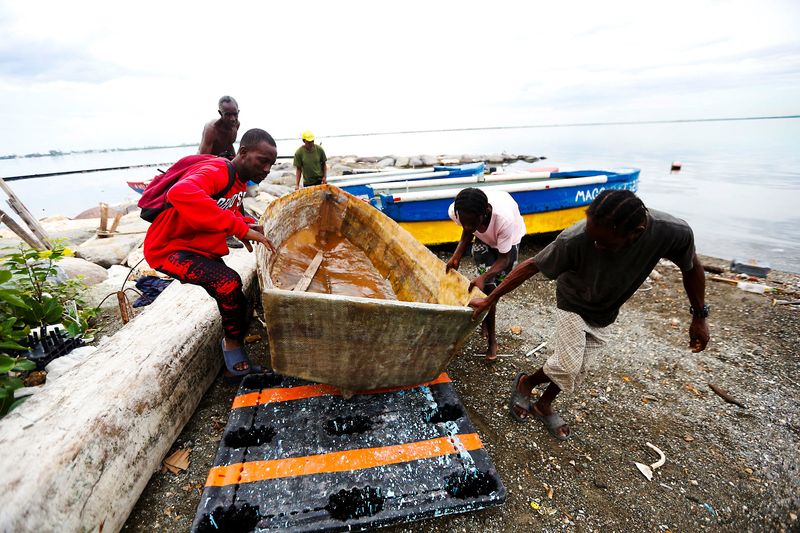
Hurricane Melissa has intensified, prompting market concerns and potential disruptions across key sectors in 2025. Investors are closely monitoring NHC advisories as such events historically impact financial markets, necessitating a reassessment of risk for businesses and individuals in affected regions. This intensification demands a deep dive into its economic repercussions.
Weather events of this magnitude can trigger sharp movements in insurance, energy, and agriculture stocks, impacting commodity prices and consumer spending. Understanding the storm’s progression is crucial for assessing risk and identifying potential investment opportunities.
Market analysts expect increased commodity price fluctuations. NHC advisories are key inputs for risk management models.
This analysis delves into the market outlook.
Expert Market Analysis
The upgrade of Tropical Storm Melissa to hurricane status by the National Hurricane Center (NHC) marks a critical juncture with considerable economic implications for 2025. Historically, such rapid intensification often precedes severe weather impacts, including extensive damage to coastal infrastructure and significant disruptions to economic activities. This escalation necessitates a thorough reassessment of risk for businesses and individuals. Similar meteorological events in the past have led to considerable supply chain disruptions and a surge in insurance claims, impacting companies across the financial spectrum. The current atmospheric conditions suggest a potential for further intensification, making continuous monitoring of NHC advisories paramount for market participants seeking to navigate potential volatility and protect their investments. As of market close, the forecast trajectory indicates a high probability of landfall in coastal areas, impacting key economic zones.
From a fundamental analysis perspective, while this natural disaster doesn’t directly influence stock tickers like an earnings report, its indirect effects are profound. The insurance sector is poised to experience a substantial increase in claims, potentially impacting the profitability of companies like ICICI Lombard and HDFC ERGO, especially if the hurricane makes landfall with significant force. Analysts will be closely monitoring for any upward revisions in commodity prices, particularly for oil and gas, and the potential impact on consumer spending in the affected areas. The energy sector could face disruptions in oil and gas production and refining operations, potentially leading to price volatility for companies such as ONGC and Reliance Industries. The rise in inflation and its effect on consumer demand are key factors for fundamental analysis moving forward.
Comparing the potential impact to peer storms, the current trajectory and intensity of Hurricane Melissa suggest it could rival events experienced in previous years that resulted in widespread power outages and agricultural losses. For instance, if the storm follows a similar path to Cyclone Tauktae, sectors heavily reliant on stable weather conditions, such as logistics and retail, could face significant challenges. Competitors within the affected regions will also be monitoring weather patterns closely, as a widespread impact can significantly affect market share dynamics for businesses that are either better prepared or less exposed to the direct path. Regulatory bodies like SEBI may also issue advisories to market participants to mitigate potential volatility, ensuring market stability during this unpredictable period. The impact on small and medium-sized enterprises (SMEs) in affected regions is also a critical consideration.
The immediate takeaway for investors is to exercise caution and conduct thorough due diligence on portfolios exposed to regions likely to be impacted by Hurricane Melissa. While the storm’s direct financial impact on publicly traded companies remains speculative, the potential for significant disruption to infrastructure, supply chains, and consumer behavior is a tangible risk. Opportunities may arise in companies that provide recovery services or are less exposed to the direct path of the storm, such as infrastructure repair firms or logistics companies operating in unaffected regions. Retail investors should consult with financial advisors and focus on long-term strategies rather than succumbing to short-term reactions, as market fluctuations are common during such events. Key events to watch include official landfall predictions, wind speed updates from the NHC, and early reports of damage to gauge the extent of economic fallout and inform investment decisions.
Related Topics:
Hurricane Melissa, Sector Impact 2025, NHC Advisories, Insurance Sector Volatility, Energy Commodity Prices, Supply Chain Disruptions, Market Outlook 2025, Indian Economy, Natural Disaster Impact, Investment Risk Assessment

